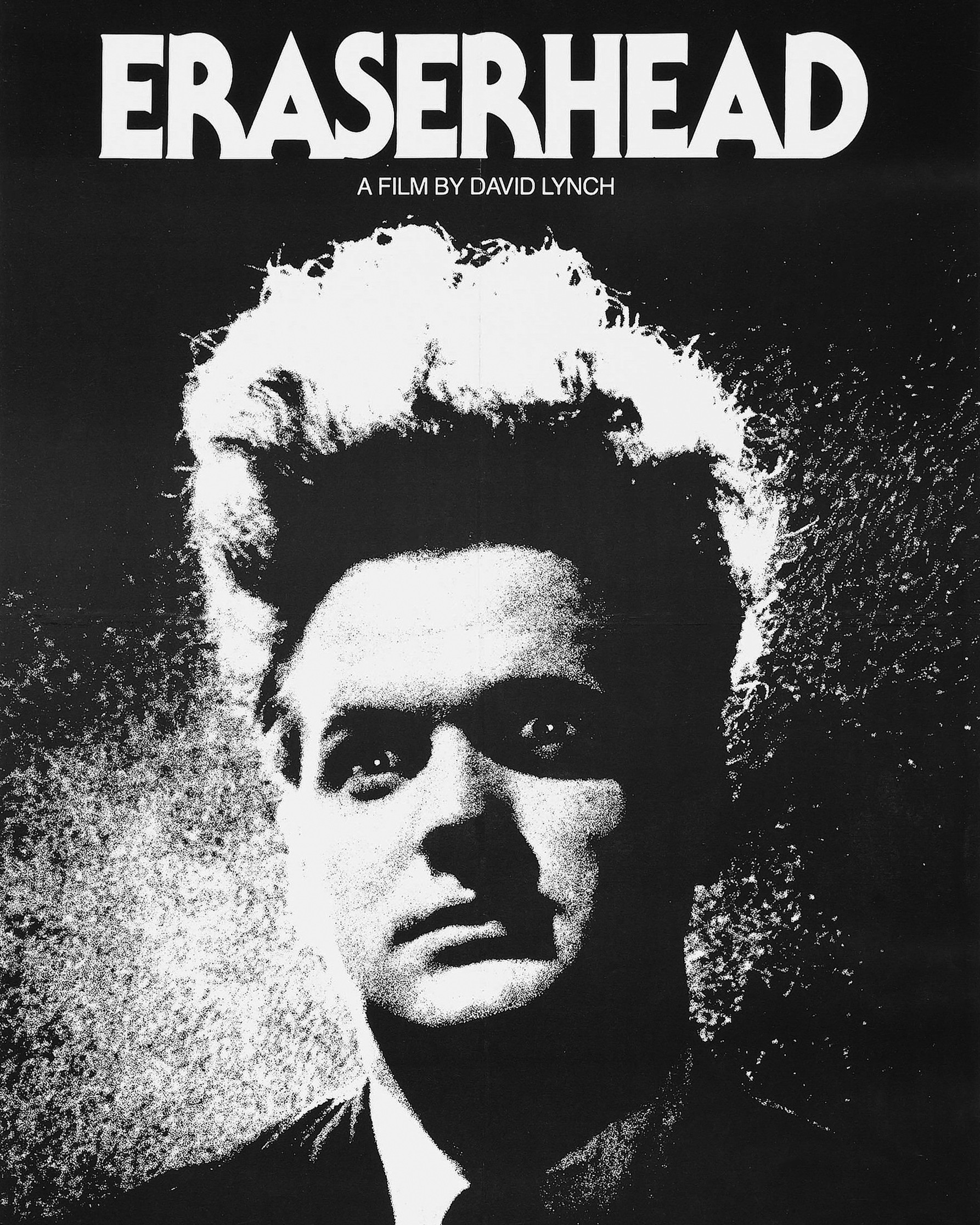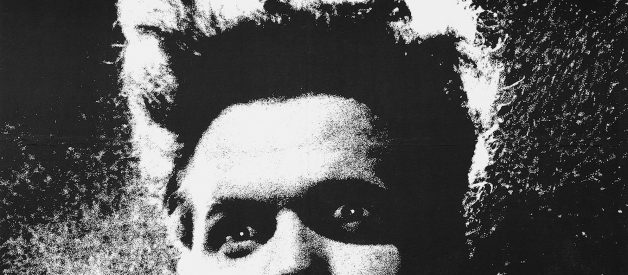 Libra Films [Public Domain]
Libra Films [Public Domain]
David Lynch?s 1977 debut Eraserhead is a film about a man crushed by the weight of meaning, by the psychological implications of having to make something of one?s self, by the dread of purpose. It?s the story of a man that deep down is content to drift, yet cannot be content because to drift is seen as a waste.
The film?s main protagonist, Henry (portrayed by Jack Nance), must battle the oppressive push and pull of meaning and purpose, particularly purpose as defined by parenthood.
In the opening sequence of the film, we see a floating, sideways image of Henry?s face superimposed over a tiny black planet that seems to exist in its own independent universe. We see that within that planet sits a man, a man slightly disfigured with scars and scabs, who pensively gazes out the window of his planet at the nervous figure of Henry.
We again see Henry, as his mouth opens wide and a single spermatozoon pushes its way through his throat and out his mouth. Back in his planet, the man turns to a series of levers, pulling them with what looks like feelings of both joy and exhaustion, as the sperm-like creature drop from the depths of dark space, away from Henry, down to earth, landing in a giant puddle.
The Man in the Planet represents the frightening force of meaning, and with just a little pulling and pushing of machinery, he gives purpose to Henry?s life, though Henry?s anxious eyes seem to suggest he never asked to receive any purpose.
On earth, Henry?s world is one made up of barren industrial landscapes accompanied by the humming sounds of metallic wind, distant and muffled horns, buzzing background electricity, unnerving yet dull clacks ? essentially an atmosphere that informs Henry?s sense of anxiety and desolation.
He lives in a cramped and dingy one-bedroom apartment with only the bare essentials and a pile of dirt on his bedside table. He receives worms in the mail and daydreams with his eyes turned toward his radiator ? an object (and place) which we later learn brings Henry great comfort (of sorts).
Shortly after we?re given a glimpse into Henry?s mostly isolated existence, his neighbor informs him that his girlfriend, Mary, has called and invited him over for dinner at her parents? home.
When Henry arrives and meets Mary?s mother for the first time, she asks him what he does. Henry replies that he is on vacation, meaning Henry is unemployed. Henry does nothing. He contributes nothing, produces nothing, and therefore he means nothing. He has no real way of defining himself, and is seen almost as scarcely human. The admittance of his meaningless existence causes Mary great discomfort, and she soon goes into a seizing fit once Henry comes clean to Mary?s mother about his aimless life.
Shortly after the family has dinner, Henry is soon informed that Mary is pregnant with what is believed to be Henry?s child ? the sperm-like creature that?s seen at the beginning of the film (although, Henry and Mary?s spawn never evolves into a full child. It mostly resembles some sort of reptilian/amphibian creature). Parenthood will now give unwanted purpose to Henry?s life.
The fact that Henry and Mary are now parents means they must join in wedlock. Not only does Henry have meaning forced upon him in the form of parenthood, but in the form of marriage as well. With hardly a moment?s notice, Henry is drowning beneath the violent undertow of meaning.
Marital squabbles soon ensue over shirked responsibilities, and Henry?s anxiety only seems to grow worse once Mary leaves him for a time to take care of the child on his own.
With his wife gone and his child growing sick, Henry is left with nothing but his daydreams ? sometimes seemingly nightmarish. His daydreams tend to take place in a special place: the radiator of his apartment.
It?s in Henry?s reveries that unfold within his radiator that show us the internal, frightening disarray caused by meaning thrust upon him by fatherhood and matrimony.
Within the radiator is a stage, and its primary star is the Lady in the Radiator. The first time we see her she tip toes across the stage to the tune of vaudeville music, as sperm-like creatures begin to drop from above and onto the stage. With a playful, almost coquettish smile on her face, the Lady in the Radiator stomps on the spermatozoa while their insides splash across the checkered floor.
The Lady in the Radiator represents something akin to non-meaning. She is a concept that we can see as a sense of comfort that washes away (murders?) Henry?s suffering caused by the pressures to make something of himself.
In a later, more chaotic dream sequence, we?re given greater insight into Henry?s conflict with purpose and meaning. We see the Lady in the Radiator alone on the stage serenely yet somewhat somberly singing the mantra ?In heaven everything is fine.? Henry nervously makes his way to the stage, looks directly at The Lady in the Radiator for solace, but the sound of a violent, electric gale erases any sense of previously received comfort by the soothing sounds and sight of her presence.
Henry watches her disappear, only to have her replaced by the scabrous and sinister presence of the man in the planet ? aimless placidity is displaced by the ugly terrors of meaning. Soon Henry?s own head falls from his shoulders as a head resembling that of his wailing, disgusting spawn springs forth from beneath the shirt collar of his everyman suit. Purpose and meaningless are in a full-fledged fight to the death.
During the film?s climax ? after Henry has awoken from his nightmare ? Henry cuts open the bandages which enwrap his sickly child. The child?s insides begin to burst as it soon grows in size, taking over Henry?s apartment. We are then taken back to The Man in the Planet, aggressively twisting and turning at his levers as his planet seems to hurtle towards destruction.
In the final scene of the film, Henry is seen embracing The Lady in the Radiator. We see calm in Henry?s eyes for the first and only time.
Henry is free of suffering only when cradled by the symbol of non-meaning, The Lady in the Radiator. It?s only when Henry has the freedom to simply be nothing at all, bathing in her warmth, that he feels content.
Eraserhead is a movie so bizarre and filled with such surreal and strange imagery that it can sometimes feel difficult to discern the meaning of the film. While the picture invites us to search for new meaning upon every viewing, one thing appears clear: the manacles of the pressures of purpose are the source of Henry?s turmoil.


